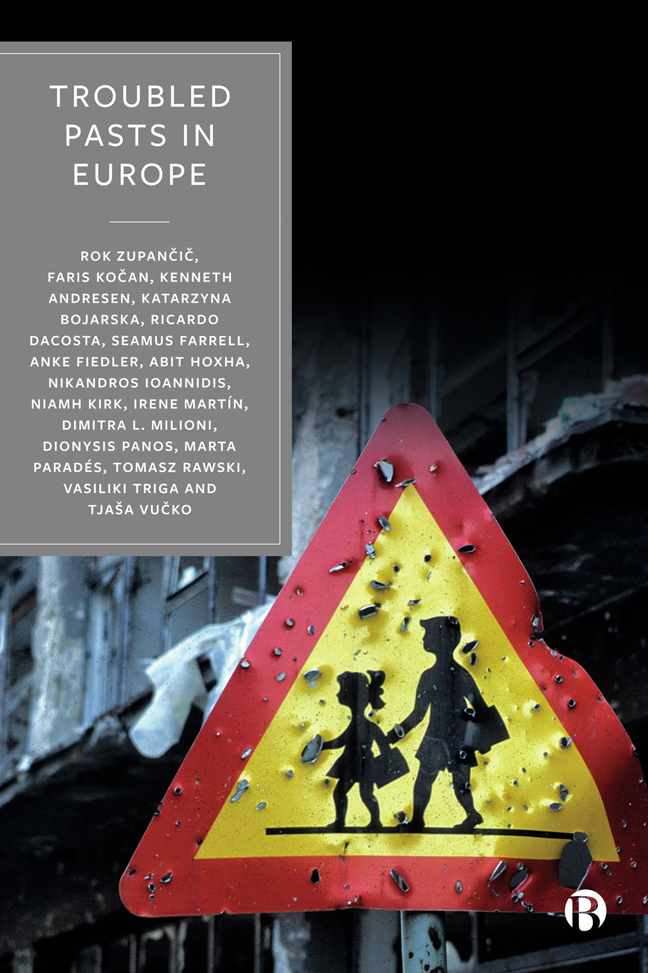 Troubled Pasts in Europe
Troubled Pasts in Europe Published online by Cambridge University Press: 25 January 2024
Introduction
The two communities in Cyprus, Greek Cypriots and Turkish Cypriots, lived relatively peacefully on the island for centuries. Even after the Greek revolution in 1821 against the Ottoman Empire and the emergence of the ‘Enosis’ ambition (annexation of Cyprus to Greece) among the Greek Cypriots, the two communities continued to live in harmony.
Political developments of the 20th century, such as British colonialism and the hostilities between Greece and Turkey, were crucial in generating a Greek–Turkish conflict in Cyprus. Greek Cypriots considered their community as the historical inhabitants of the island and thus sought the annexation of the island to the newly founded Greek state. On the other side, Turkish Cypriots considered that ‘Enosis’ would degrade their rights and wanted to divide the island into two parts. After a four-year anti-colonial armed struggle (1955–9), Greek Cypriots failed to achieve ‘Enosis’, and the two communities compromised on the foundation of an independent state. The foundation of the Republic of Cyprus (RoC) was not the priority for either of the two communities, so bi-communal conflicts continued. In 1974, after a failed coup d’état orchestrated by the Greek junta against the legitimately elected president of the RoC, Turkey invaded the northern part of the island. The Turkish invasion forced hundreds of thousands of Cypriots to leave their homes and migrate to the north or south. Since then, Turkey has deployed a large military force in the northern part of Cyprus, while, according to international law, an illegal state was founded, which is solely recognized as a sovereign state by Turkey. After 1977, the five parties involved in the Cyprus Problem (Greek Cypriots, Turkish Cypriots, Greece, Turkey and the UK) sat at the negotiating table several times to find a mutually acceptable solution, which has not yet been achieved.
The two communities had lived in complete isolation for many years, as until 2003, the regime in the north did not allow anyone to cross to the other side of the island. In 2003, the opening of some checkpoints allowed inter-communal contact for the first time in almost 30 years. Nevertheless, to this day, the relations and the contacts between Greek Cypriots and Turkish Cypriots are still considered marginal.
To save this book to your Kindle, first ensure [email protected] is added to your Approved Personal Document E-mail List under your Personal Document Settings on the Manage Your Content and Devices page of your Amazon account. Then enter the ‘name’ part of your Kindle email address below. Find out more about saving to your Kindle.
Note you can select to save to either the @free.kindle.com or @kindle.com variations. ‘@free.kindle.com’ emails are free but can only be saved to your device when it is connected to wi-fi. ‘@kindle.com’ emails can be delivered even when you are not connected to wi-fi, but note that service fees apply.
Find out more about the Kindle Personal Document Service.
To save content items to your account, please confirm that you agree to abide by our usage policies. If this is the first time you use this feature, you will be asked to authorise Cambridge Core to connect with your account. Find out more about saving content to Dropbox.
To save content items to your account, please confirm that you agree to abide by our usage policies. If this is the first time you use this feature, you will be asked to authorise Cambridge Core to connect with your account. Find out more about saving content to Google Drive.